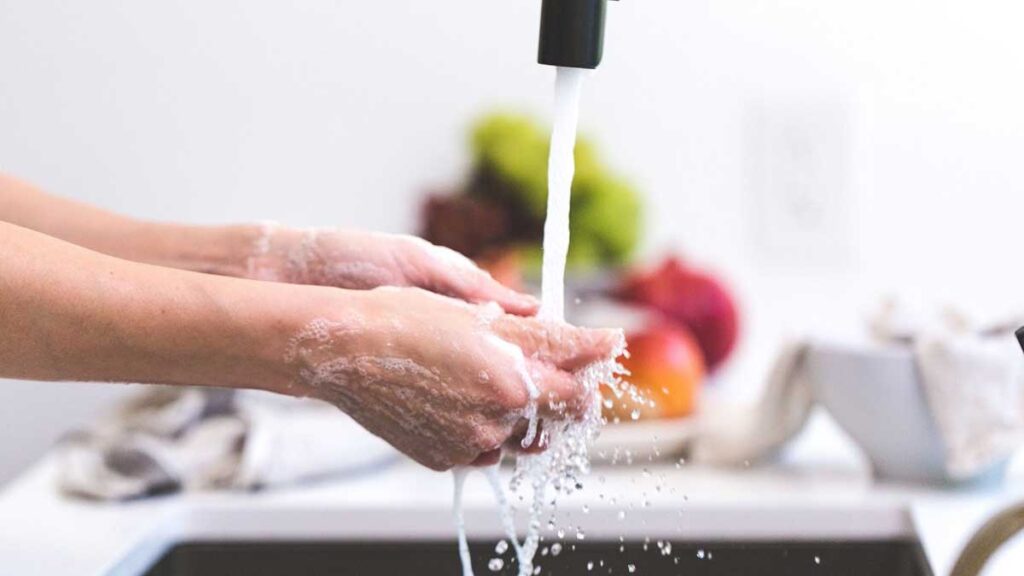How To Tell If You Need Water Softeners
If you have never heard of it, you might be thinking someone is talking about ice. But hard water is nothing of the sorts.
Bad for your home, horrible to taste, and detrimental for your skin and hair – what is hard water? Should you be concerned about it? Do I need to soften my water?
You may be surprised what effect hard water has on your home and your body. So for today, we wanted to talk about what exactly hard and soft water means, what you need to do about it, and who you should call to uncover the hardness of your water.
What Does Hard or Soft Water Mean?
The water you drink from home isn’t the simple H₂O you were taught in high school. In fact, water naturally contains a variety of minerals, whether it is from your home, a lake, or a creek.
What determines if your water is “hard” or “soft” is the amount of minerals found within your water supply. Minerals, such as calcium carbonate (CaCO₃) and magnesium carbonate (MgCO₃), can be found in high quantities depending on where your water is sourced.
Wells and groundwater that have been in contact with porous rocks, like limestone or dolomite will most likely be extremely hard, while fresh glacier water would be comparatively softer.
Water supplied from a municipal source can vary. This is because each water treatment plant starts with a different source. Luckily, hard water is far from being dangerous, and the minerals frequently found within hard water has been found to be beneficial for consumption, within reason.
It is the appliances that keep our homes running that will face difficulty when constantly in contact with hard water. Over time, these dissolved minerals will deposit in pipes, tubes, and coffee makers, often causing damage without proper maintenance.
So, how many minerals are too many for your health and the longevity of your appliances?
How to Detect Hard Water from Home
For some, detecting hard water will be as simple as looking. Do you often have calcium build-up on your shower head or faucets? Does water leave a white residue in the kitchen drying rack? Do you find rust like colouring in your toilet bowls or bathtub?
Tell tale signs like these can help you to understand the presence of minerals within your water supply, however, using your eyes isn’t the most accurate representation of many minerals are present.
The easiest way for homeowners to measure the hardness of their water is through test strips, such as these, that can be found at local hardware stores or online. Following the instructions, most test kits will call for you to fill a glass with cold water, insert the test strip for an allotted time, and then remove it. The strip will change colour and represent a range of minerals, either in grains per gallon (gpg) or parts per million (ppm).
Customarily, water with less than 60 ppm (0-3.5 gpg) can be considered soft, water with 60-120 ppm (3.5-7.0 gpg) moderately hard, and water with greater than 120 ppm (10.5 gpg) hard.
As well, homeowners with municipally supplied water will often receive a annual update from their city or town with a detailed overview of their water treatments and mineral compositions.
Do I Need a Water Softener?
If you find that your home’s water supply is defined as moderately hard or hard, you may want to consider a water softener. While extra minerals in your water can be healthy for you, build up of scale can be harmful for your appliances, your laundry, your hair and skin, and worst of all, your plumbing.
The best way to determine if you need to soften your water is by consulting an expert. While there are several DIY testing kits available, a professionally evaluation will help uncover the damage hard water might be causing to your home.
Analysis from the Plumbing Medics
If you’re concerned about your water’s mineral hardness, give the Plumbing Medic a call. We can help analyze your water to determine the hardness or softness, while providing expert advice for any water conditioning your home may require.
If you want better tasting, cleaner water that won’t stain your showers or ruin your clothes, Plumbing Medic is next call you should make. We’ve helped thousands of homeowners protect their pipes and appliances, saving countless dollars on repairs and replacements.
If you want to know more about our water condition services for Ontario, visit our page here for more information, or reach out today.

